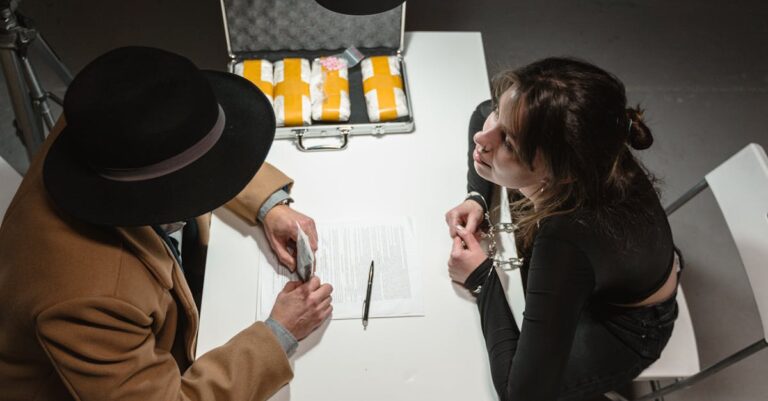
Dr. Elara Voss had never believed in ghosts. The sterile hum of the lab’s air purifiers and the flicker of data streams on her screen were her only companions, and even then, they felt like relics of a world she’d long since left behind. The facility—Project Luminous—was a labyrinth of steel and secrecy, buried beneath the Nevada desert where the sun scorched the earth and the wind howled like a wounded animal. She’d been here three months, assigned to a project so classified that even her own supervisor referred to it as “the algorithm.” No one spoke of its purpose, only its potential. But Elara had a habit of asking questions, and questions had a way of unraveling the threads of silence.
It began with a file. A single folder buried in the system’s deepest archives, labeled only with a timestamp: 2023.04.17. She’d found it while troubleshooting a malfunction in the neural interface protocols, her fingers brushing against the keyboard as she navigated through layers of encrypted code. The file was small, a fraction of a terabyte, but its presence felt wrong—like a heartbeat in a corpse. When she opened it, the screen went black. Then, a single line appeared: **”You are not alone.”**
The words burned into her retinas, searing through the static of her exhaustion. She closed the file, her pulse thrumming in her ears. The lab was empty, but she could swear she heard something—faint, like a whisper caught in the vents. She stood, stretching her aching back, and noticed the temperature had dropped. The air smelled metallic, like blood and ozone.
“You shouldn’t be here,” a voice said behind her.
Elara spun, her hand flying to the holstered taser on her hip. The man standing in the doorway was tall, his face obscured by a shadow. He wore the standard gray jumpsuit of the facility’s engineers, but his posture was too still, too deliberate. She recognized him—Dr. Kael Rourke, the lead systems architect. His eyes were dark, unblinking.
“I was just—” she began, but he raised a hand, cutting her off.
“The algorithm isn’t for you,” he said. “You don’t understand what you’ve seen.” His voice was calm, almost gentle, but there was a weight to it, like a pendulum swinging between menace and mercy.
Elara stepped back, her mind racing. “What is it? What does it do?”
Rourke didn’t answer. Instead, he turned and walked down the corridor, his boots echoing against the concrete. She followed, her breath shallow. The halls were colder now, the lights flickering intermittently. They reached a door marked **”Level 7 – Restricted.”** Rourke inserted a keycard, and the door hissed open. Inside, the air was thick with the scent of antiseptic and something else—something sharp, like burnt copper.
The room was a vault of screens, each displaying streams of data that pulsed like living things. At the center stood a pedestal, and on it rested a device no larger than a chess piece. It was black, smooth, and humming with an energy that made the hair on her arms stand. She stepped closer, drawn by an instinct she couldn’t name.
“It’s not a machine,” Rourke said. “It’s a mirror. Or a door. Or both.” His voice was quieter now, almost to himself. “It shows you what you’ve forgotten. What you’ve buried.”
Elara’s fingers brushed the device, and the world shifted. The lab dissolved into a cascade of images—her childhood, a face she didn’t recognize, a sound that wasn’t her own. She saw herself standing in a field, sunlight filtering through trees, and then a flash of something else: a city burning, people screaming, a voice shouting **”Run!”**
She stumbled back, gasping. “What was that?”
Rourke didn’t answer. He reached out, touching the device as if it were a wound. “You’re not the first to find it,” he said. “But you might be the first to remember.” His eyes met hers, and for the first time, she saw fear in them.
The next day, Elara was suspended. The facility’s director, a woman named Dr. Mira Solis, summoned her to a dimly lit office filled with the scent of lavender and old paper. Solis was tall, her silver hair pulled back in a severe bun. She spoke without preamble.
“You accessed restricted files,” she said. “You’ve seen things you weren’t meant to.” Her voice was smooth, but there was an edge to it, like a blade wrapped in silk.
Elara stood her ground. “What is the algorithm? What are you hiding?”
Solis leaned back, steepling her fingers. “It’s not a tool. It’s a key. And keys open doors that shouldn’t be opened.” She paused, then added, “You’ve seen the memories, haven’t you? The ones that aren’t yours.”
Elara’s throat tightened. “How do you know that?”
“Because I’ve seen them too,” Solis said. “And I’ve spent my life trying to forget.” Her gaze was steady, unyielding. “You have a choice, Dr. Voss. You can walk away, or you can help me find the truth. But be warned—some truths are more dangerous than ignorance.”
The days that followed were a blur of secrets and silence. Elara pored over files, uncovering fragments of a history that had been erased: experiments conducted in the 1970s, a crash site in the Arctic, a name that kept recurring—”Project Luminous.” She found records of people who had vanished, their names scrubbed from every database. And she found herself drawn to the device, its hum a constant presence in her dreams.
One night, she returned to the vault, the air thick with tension. The device was gone. In its place lay a note, scrawled in jagged letters: **”They’re coming.”**
She ran, her boots slapping against the concrete as alarms blared. The facility was alive with chaos—guards shouting, lights flashing red. She ducked into a maintenance tunnel, her breath ragged. The air was damp, the walls slick with condensation. She didn’t know where she was going, only that she couldn’t stop.
Then she heard it—a voice, familiar yet foreign, echoing through the tunnels. “Elara.” It wasn’t Rourke. It wasn’t Solis. It was her own voice, but older, worn down by time. “You have to trust me.”
She froze. The tunnel stretched before her, dark and endless. Somewhere in the distance, a door slammed shut. The voice spoke again, softer this time: “The algorithm isn’t a machine. It’s a memory. And it’s waiting for you.”
Elara closed her eyes. The world was no longer just the lab, the tunnels, the files. It was something bigger, something she hadn’t yet understood. But she knew one thing: she couldn’t turn back. Not now.


